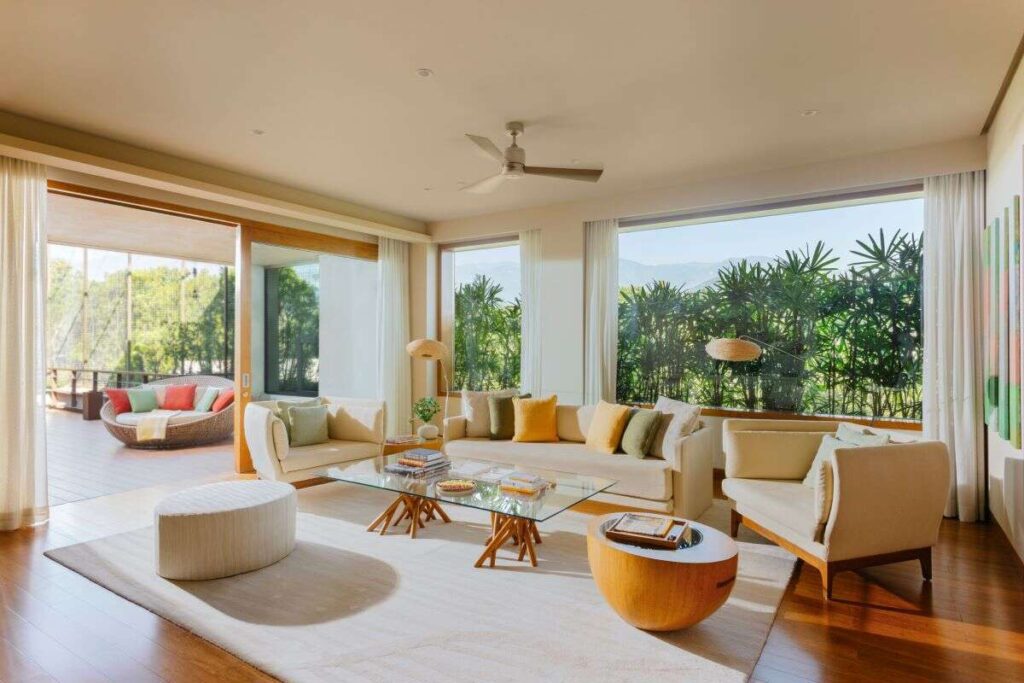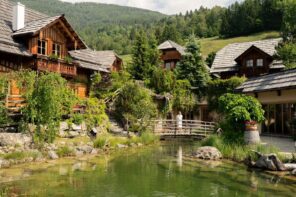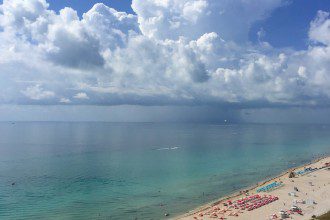At Six Senses Vana, nestled within the serene environs of northern India, guests embark on a transformative journey of wellness, guided by ancient traditions and modern expertise. On my second day at this sanctuary of rejuvenation, I find myself seated in Dr. Sopa’s office, clad in the pristine white kurta robes provided upon arrival. With meticulous care, Dr. Sopa, a specialist in Tibetan medicine, conducts a thorough examination of my bio-energy, revealing insights gleaned from both my left and right-hand pulses.
In Tibetan medicine, known as Sowa Rigpa, bio-energy is classified into three types—loong (air element), tripa (fire element), and bekan (earth and water elements)—which influence the body, energy, and mind. Dr. Sopa’s diagnosis, supported by a high-tech wellness screening, identifies an imbalance related to stress, prompting a tailored regimen of treatments, dietary adjustments, and curated activities from the retreat’s weekly programming.
Situated amidst a Sal forest on the outskirts of Dehradun, Six Senses Vana emerged in 2014 as a sanctuary for rebalancing, healing, and enlightenment in the Himalayan foothills. Embracing sustainability, this 21-acre LEED platinum-certified retreat swiftly garnered acclaim, earning recognition as a premier well-being institute renowned for its architectural splendor.
Initially focusing on Ayurveda, the ancient Indian healing system, Vana later introduced a state-of-the-art Sowa Rigpa center, distinguished as one of the few venues worldwide offering comprehensive Tibetan medicine services. In 2023, the retreat joined forces with Six Senses, a pioneering wellness group, retaining its ethos while integrating select enhancements, such as advanced wellness screenings.
Following my consultation with Dr. Sopa, I proceed to the Sowa Rigpa center for a Mongolian-style Hor Gyi Metsa massage, immersing myself in centuries-old practices administered by therapists trained at the revered Tibetan Medicine and Astrology Institute. This intensive treatment, accompanied by therapeutic herbs and skilled manipulation, delves deep into releasing tension and restoring equilibrium.
Despite initial apprehension, my experience with acupuncture under the guidance of Dr. Dimple, a specialist in traditional Chinese medicine, proves surprisingly serene. Reassured by her gentle approach, I embrace the treatment as a means of alleviating emotional blockages and fostering inner harmony.
In the tranquil surrounds of the retreat, electronic devices are prohibited in public areas, encouraging immersion in contemplative spaces like the kila, where soothing melodies and communal warmth nurture a sense of serenity. Nourishment takes center stage at Vana, with culinary offerings ranging from fragrant Indian thalis at Anayu to meticulously crafted three-course dinners at Salana, showcasing organic ingredients sourced from local gardens.
Under the guidance of Dr. Sopa, dietary adjustments and therapeutic teas gradually replace my former habits, leading to improved sleep and heightened vitality. Amidst a schedule brimming with enriching activities, from pratah yoga sessions to Tibetan Gom meditation, moments of introspection and self-discovery abound.
Venturing beyond the retreat, excursions to Santala Devi temple and Rishikesh offer glimpses of India’s spiritual heritage,

culminating in profound experiences that complement the transformative journey at Vana. As my retreat draws to a close with a transcendent Watsu therapy session, I am enveloped in a sense of renewal and profound gratitude.
Six Senses Vana has indeed worked its magic, offering a sanctuary where the healing powers of India converge with modern wellness expertise, guiding guests towards holistic well-being and inner harmony.





